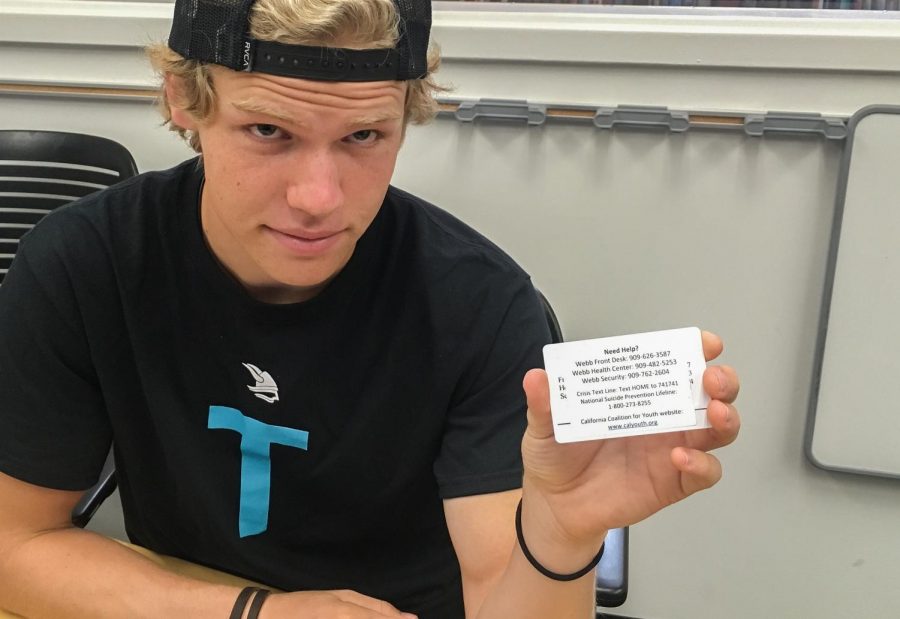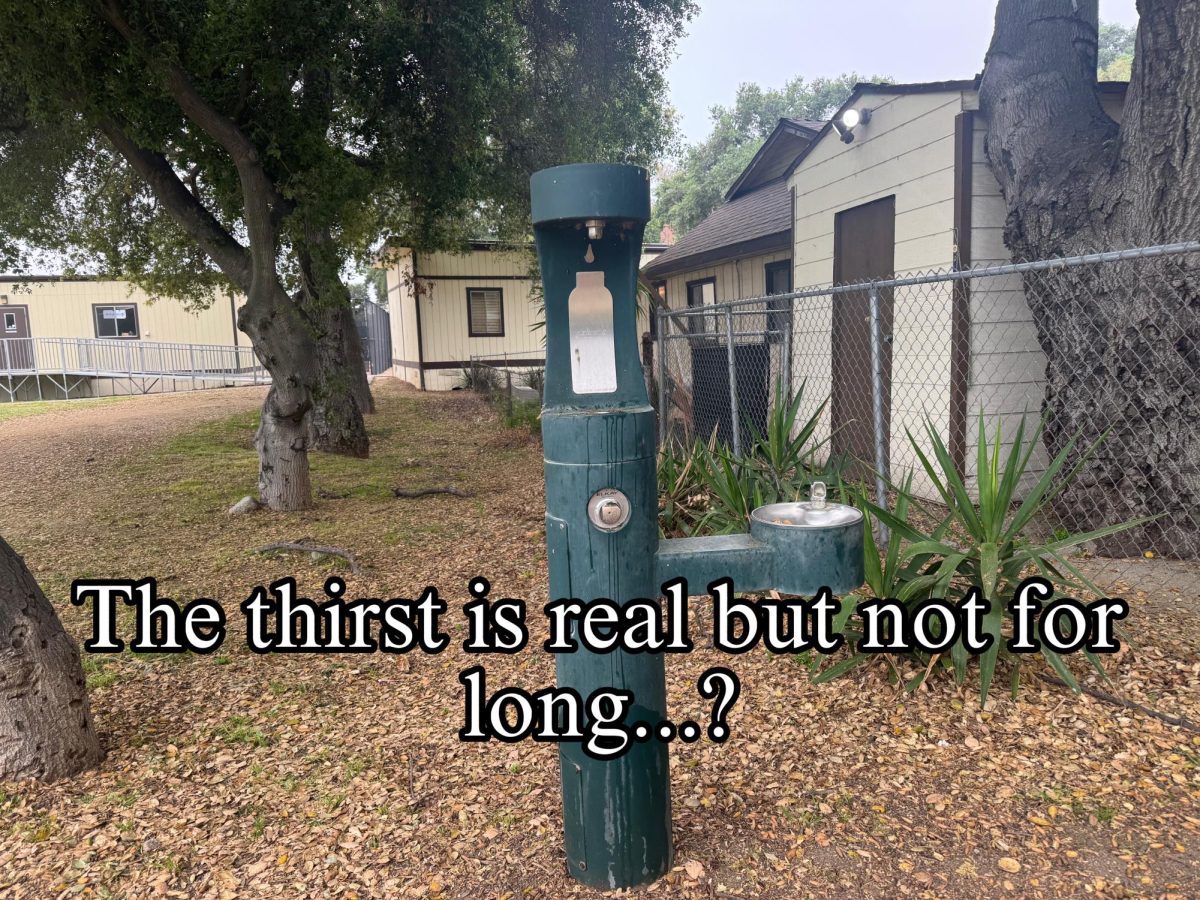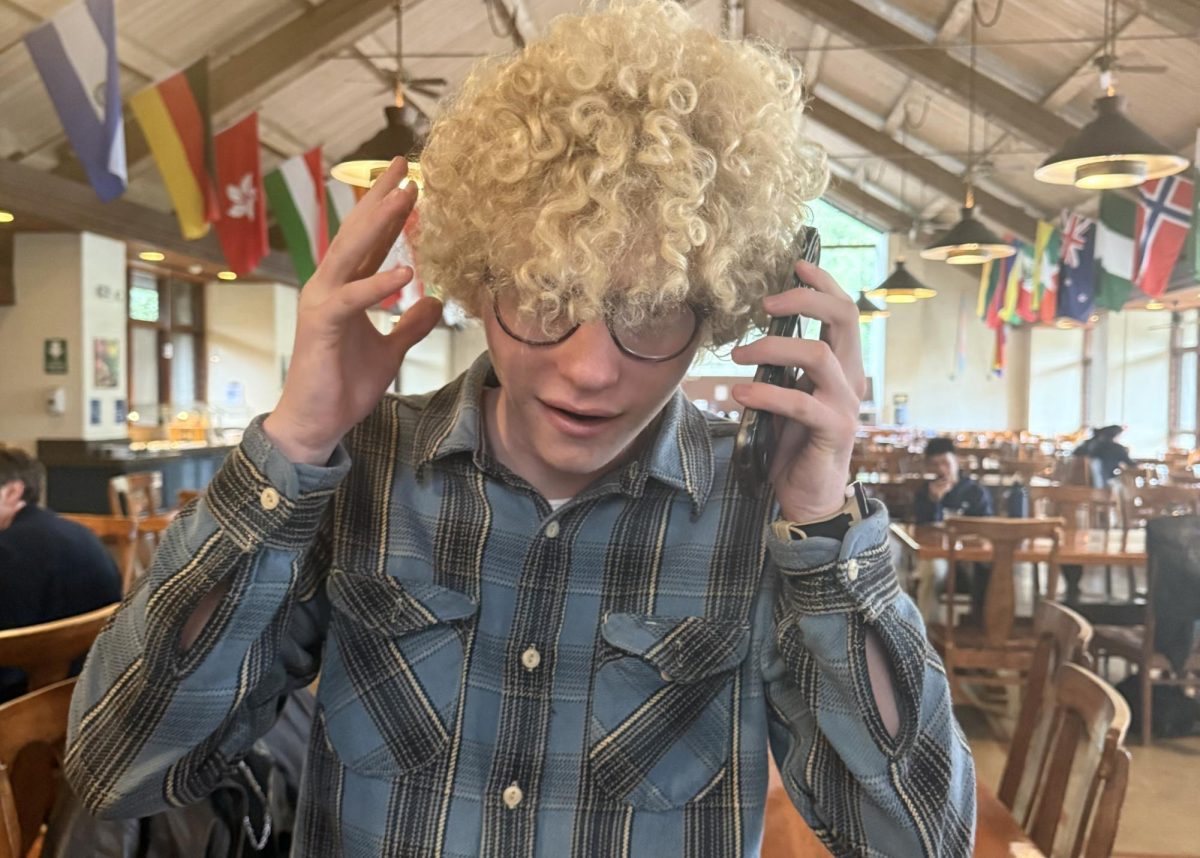Webb ID cards are easily forgotten. After students get their pictures taken during orientation and show them to their friends, they generally forget about the shiny piece of plastic. This year, Webb students rummaged through their wallets, searching for their ID cards, as advisors handed out mandatory stickers with a number for the suicide hotline.
As of July, California law dictates that all students from seventh through twelfth grade must have the number for the National Suicide Prevention Lifeline on their school ID cards. Although suicide and other mental health issues are often considered taboo, it is important to talk about and acknowledge the significance of these topics.
Melanie Bauman, Director of Counseling & Health Education, said, “They’re not perfect but they’re certainly something… there are two schools of thought when it comes to suicide prevention. One is that the more that we talk about it and the more that we highlight suicide deaths, the more it can kind of trigger others.”
This fear was especially prevalent when it came to the release of TV shows like Netflix’s 13 Reasons Why, which previously featured a graphic suicide scene (that has since then been cut from the show). The month after Netflix released 13 Reasons Why, suicide rates among youth increased dramatically, but it still took two more years for Netflix to remove the traumatic scene.
Cheyaan Jamal (‘21), who watched the show’s first season when it was released, said, “Honestly, I skipped over [Hannah Baker’s suicide] because it was really hard to watch and I didn’t want to see it… I think that [cutting the suicide scene] isn’t really doing that much because it’s already out there. You can’t take back what’s already been done.”
According to the CDC, in the year 2017, suicide was the second leading cause of death for youth in the United States between the ages of 10 and 20. When one sees suicide acted out, they are more likely to try and emulate it themselves, which is why 13 Reasons Why and similar exposures in media raise such big issues.
Ms. Bauman said, “We don’t see a spike just from talking about it. Talking about it is providing resources; it’s destigmatizing the fact that people feel this way at times, and allowing people a voice to actually talk about it, so all good things in my opinion.”
Suicide is a sensitive topic and can be intensely emotional for many students. With the addition of the National Suicide Prevention Lifeline phone number to the ID cards, students will hopefully feel more comfortable discussing and opening up the subject of suicide and other serious mental health issues.









